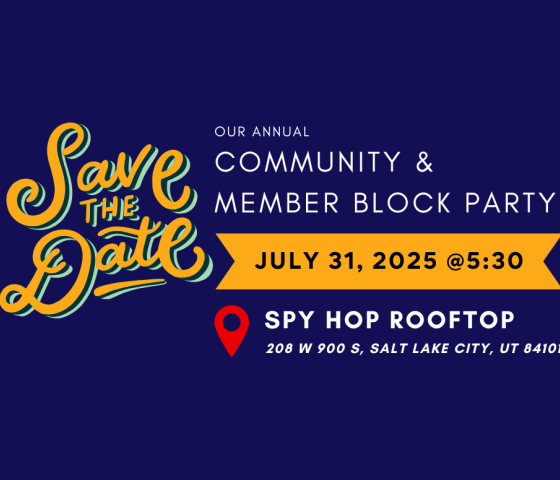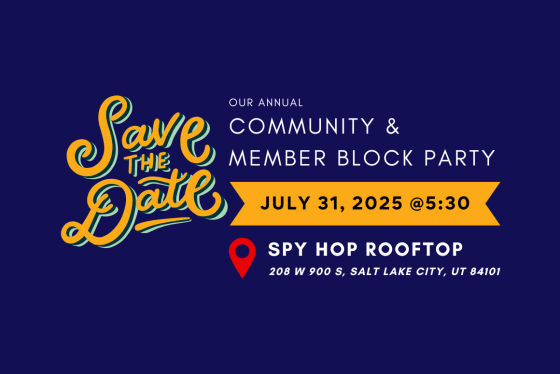On October 7, 2019, the Utah Supreme Court heard arguments in "In re Mary and Jane Doe," a case that addresses whether individuals who are beneficiaries of the Deferred Action for Childhood Arrivals (DACA) program can be admitted to the Utah State Bar, and if the Utah Supreme Court has the power to admit them. Learn more about the ACLU's role in this case.
The ACLU of Utah submitted a "friend of the court" brief to the Court, arguing that the state’s judicial branch has the power to make this decision, and that undocumented immigrants who meet the rigorous criteria for bar admission can and should be admitted to the Utah State Bar. Learn more about this important civil rights argument in "Open the Bar," an article published in the Spring 2019 "Liberty Reporter" ACLU if Utah newsmagazine.
Open the Bar
If undocumented immigrants are qualified to practice law, they should be admitted to the Utah State Bar
Should beneficiaries of the Deferred Action for Childhood Arrivals (DACA) be admitted to the Utah State Bar, and does the Utah Supreme Court have the power to admit them? These were the key questions raised in a petition to the Court by two DACA recipients seeking to become licensed attorneys in Utah. To answer those questions, the court invited the ACLU and others to weigh in as amicus curiae, or “friends of the court.” Ultimately, about a dozen organizations and individuals submitted briefs, including law professors, the Utah Legislature, and the U.S. Department of Justice.
In a brief the ACLU of Utah and the ACLU Immigrants’ Rights Project submitted to the Court in late March, we replied to both questions with an emphatic “yes.” We believe that state’s judicial branch has the power to make this decision, and that undocumented immigrants who meet the rigorous criteria for bar admission can and should be admitted to the Utah State Bar. We also noted that several other states already permit undocumented attorneys to be admitted to the bar.
Currently, attorneys who lack immigration status are not being admitted to the Utah State Bar, a process controlled by the Utah Supreme Court. This situation has created a barrier to employment for law school graduates who have satisfied every other requirement to practice law in the state. When a reporter covering the issue for KUTV interviewed Ciriac Alvarez, a DACA recipient who has been accepted at several law schools, she explained her hesitancy to matriculate unless she can be admitted to practice law. “There’s no point in going to a firm and saying that yes, I am technically a lawyer, but I haven’t taken the bar [exam] yet,” she told KUTV.
DACA is a program that grants protection from deportation and work authorization to qualified undocumented immigrants who came to the United States as children. “We support the ability of Dreamers to reach their professional goals to continue making important contributions to our society,” explains John Mejia, Legal Director of the ACLU of Utah. “Because the Utah Supreme Court governs access to the Utah State Bar, we believe that the Court can and should grant admission to DACA recipients and other qualified immigrants.” The Utah Supreme Court is expected to issue a decision on this issue sometime this year.
7. 20180806 In re Mary and Jane Doe- Proposed R. 14-721 RUL
Petitioner
Proposed Rule 14-721 ANTHONY C. KAYE (BALLARD SPAHR LLP)
NATHAN R. MARIGONI (BALLARD SPAHR LLP)
Utah State Bar ELIZABETH A. WRIGHT (UTAH STATE BAR)
Amicus Curiae
Ad Hoc Coalition of Utah Law ProfessorsD. CAROLINA NUNEZ (BRIGHAM YOUNG UNIVERSI
KIF AUGUSTINE-ADAMS (BRIGHAM YOUNG UNIVERSITY LAW
American Bar Association CHRISTOPHER MARTINEZ (DORSEY & WHITNEY, LLP)
M. BENJAMIN MACHLIS (DORSEY & WHITNEY, LLP)
M. PEGGY HUNT (DORSEY & WHITNEY, LLP)
American Civil Liberties UnionJENNIFER NEWELL (AMERICAN CIVIL LIBERTIES UNION)
JOHN MEJIA (ACLU FOUNDATION OF UTAH, INC.)
SPENCER E.W. AMDUR (AMERICAN CIVIL LIBERTIES UNION
Latino-Justice Amici ALAN L. SULLIVAN (SNELL & WILMER L.L.P.)
JOSE PEREZ (LATINO JUSTICE PRLDEF)
WILLIAM DANIEL GREEN (SNELL & WILMER L.L.P.)
Office of the Utah Attorney GeneralSTANFORD E. PURSER (DEPUTY SOLICITOR GENERAL)
Parr Brown Gee & Loveless, PC DAVID C. REYMANN (PARR, BROWN, GEE & LOVELESS)
JASON R. PERRY (PARR, BROWN, GEE & LOVELESS)
LASHEL SHAW (PARR, BROWN, GEE & LOVELESS)
STEPHEN C. MOURITSEN (PARR, BROWN, GEE & LOVELESS)
STEPHEN E. HALE (PARR, BROWN, GEE & LOVELESS)
U.S. Department of Justice DANIEL TENNY (U.S. DEPARTMENT OF JUSTICE)
JENNIFER PAISNER WILLIAMS (UNITED STATES ATTORNEY'
JOHN HUBER (UNITED STATES ATTORNEY OFFICE)
University of Utah, S.J. Quinney College of LawBETH E. KENNEDY (ZIMMERMAN BOOHER
TROY L. BOOHER (ZIMMERMAN BOOHER)
Utah Minority Bar Association BRETT L. TOLMAN (RAY, QUINNEY & NEBEKER)
BRITTANY MERRILL (RAY, QUINNEY & NEBEKER)
JUGRAI DHALIWAL (RAY, QUINNEY & NEBEKER)
PAUL C. BURKE (RAY, QUINNEY & NEBEKER)
Utah State Office Legislative Research & Gen CounselJOHN L. FELLOWS (OFFICE OF L
ROBERT H. REES (OFFICE OF LEGISLATIVE RESEARCH)

